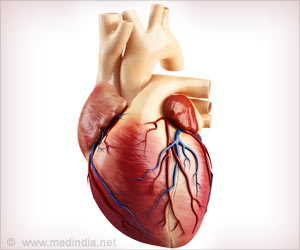Although coronary artery calcium scans are increasingly prevalent and cost-effective, they have yet to be included in guideline-directed standard care.

Coronary calcium test could help clarify heart disease risk - and control cholesterol
Go to source). A recent study by Intermountain Health in Salt Lake City reveals a commonality among such patients—they tend to have elevated levels of coronary calcium. The study suggests that scans detecting this plaque buildup should be incorporated into standard care, even for those lacking the traditional risk factors, enabling early diagnosis and treatment to prevent a first heart attack event.
Coronary Calcium Measurement's Potential Impact on Heart Disease Identification
“Measuring coronary calcium could have a major impact on how we identify who is at risk for heart disease,” said Jeffrey L. Anderson, lead author of the study and research physician at Intermountain Health. “We need to go beyond just the four major modifiable risk factors because there are risk factors we don’t yet recognize or understand about what’s causing increased risk of heart attack in these patients.”‘Assessing coronary calcium levels could significantly alter our approach to identifying individuals at risk for heart disease. #coronarycalcium #heartdisease #heartattack’





Findings from the study were presented at the American Heart Association’s Scientific Sessions 2023 in Philadelphia on Nov 11, 2023. In the study, Intermountain researchers identified 429 heart attack patients who also had coronary artery calcium scans. Of those, 369 had standard modifiable risk factors (SMuRF), like a diagnosis or treatment of hypertension, hyperlipidemia, diabetes, and or smoking; and 60 did not (SMuRF-less).
Researchers examined these patients’ calcium artery scan scores, and then also major adverse cardiovascular events, like another heart attack, stroke, or death, at 60-days and long term.
Researchers found that SMuRF-less patients had high rates of, and higher percentile of, coronary calcium scores. They also found that 77% of these patients met their criteria for preventative therapy, like statins and/or aspirin. Patients with SMuRF, as expected, also had high CAC scores and percentiles. Outcomes were more favorable overall for SMuRF-less patients and for those patients with lower coronary artery calcium scores.
“We’re missing about a quarter of people who are at risk for heart attack events because we’re still relying on just the standard risk factors,” said Dr. Anderson. “We haven’t been doing scans in low-risk patients that don’t have these common risk factors, but that may need to change given our findings, so that we can identify these seemingly low-risk patients who care not, and provide preventive therapy.”
Advertisement
- Coronary calcium test could help clarify heart disease risk – and control cholesterol - (https://www.heart.org/en/news/2018/11/13/coronary-calcium-test-could-help-clarify-heart-disease-risk-and-control-cholesterol)
Source-Eurekalert















